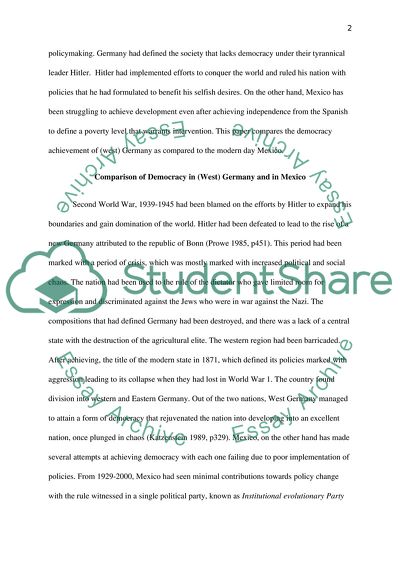Cite this document
(“Why did (west) Germany experience a smoother consolidation of Essay”, n.d.)
Retrieved from https://studentshare.org/miscellaneous/1590791-why-did-west-germany-experience-a-smoother-consolidation-of-democracy-after-world-war-two-than-has-mexico-more-recently
Retrieved from https://studentshare.org/miscellaneous/1590791-why-did-west-germany-experience-a-smoother-consolidation-of-democracy-after-world-war-two-than-has-mexico-more-recently
(Why Did (west) Germany Experience a Smoother Consolidation of Essay)
https://studentshare.org/miscellaneous/1590791-why-did-west-germany-experience-a-smoother-consolidation-of-democracy-after-world-war-two-than-has-mexico-more-recently.
https://studentshare.org/miscellaneous/1590791-why-did-west-germany-experience-a-smoother-consolidation-of-democracy-after-world-war-two-than-has-mexico-more-recently.
“Why Did (west) Germany Experience a Smoother Consolidation of Essay”, n.d. https://studentshare.org/miscellaneous/1590791-why-did-west-germany-experience-a-smoother-consolidation-of-democracy-after-world-war-two-than-has-mexico-more-recently.


